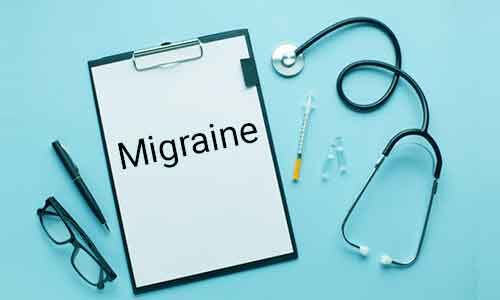- Home
- Medical news & Guidelines
- Anesthesiology
- Cardiology and CTVS
- Critical Care
- Dentistry
- Dermatology
- Diabetes and Endocrinology
- ENT
- Gastroenterology
- Medicine
- Nephrology
- Neurology
- Obstretics-Gynaecology
- Oncology
- Ophthalmology
- Orthopaedics
- Pediatrics-Neonatology
- Psychiatry
- Pulmonology
- Radiology
- Surgery
- Urology
- Laboratory Medicine
- Diet
- Nursing
- Paramedical
- Physiotherapy
- Health news
- Fact Check
- Bone Health Fact Check
- Brain Health Fact Check
- Cancer Related Fact Check
- Child Care Fact Check
- Dental and oral health fact check
- Diabetes and metabolic health fact check
- Diet and Nutrition Fact Check
- Eye and ENT Care Fact Check
- Fitness fact check
- Gut health fact check
- Heart health fact check
- Kidney health fact check
- Medical education fact check
- Men's health fact check
- Respiratory fact check
- Skin and hair care fact check
- Vaccine and Immunization fact check
- Women's health fact check
- AYUSH
- State News
- Andaman and Nicobar Islands
- Andhra Pradesh
- Arunachal Pradesh
- Assam
- Bihar
- Chandigarh
- Chattisgarh
- Dadra and Nagar Haveli
- Daman and Diu
- Delhi
- Goa
- Gujarat
- Haryana
- Himachal Pradesh
- Jammu & Kashmir
- Jharkhand
- Karnataka
- Kerala
- Ladakh
- Lakshadweep
- Madhya Pradesh
- Maharashtra
- Manipur
- Meghalaya
- Mizoram
- Nagaland
- Odisha
- Puducherry
- Punjab
- Rajasthan
- Sikkim
- Tamil Nadu
- Telangana
- Tripura
- Uttar Pradesh
- Uttrakhand
- West Bengal
- Medical Education
- Industry
Prophylactic treatment of migraine not effective in pediatric age group: JAMA

Migraines affect not only adults but frequently also children and adolescents interfering with every area of their lives. In order to prevent migraine attacks and reduce symptoms, a variety of drugs are used in pharmacological migraine prophylaxis. A review evaluates whether prophylactic treatment is effective in this age group or not.
Researchers from the University of Basel have concluded that in paediatric age group preventive pharmacological treatment of migraine is no more effective than placebo in the long term. The results of the review have been published in the scientific journal JAMA Pediatrics.
Until now, the treatment of young patients has largely been based on adult studies, but it is questionable whether these prophylactic interventions in children and adolescents have a comparable effect. Moreover, it is suspected that the placebo effect is often more pronounced in the younger age group.
Psychologists from the University of Basel have now taken part in an international collaboration to investigate which drugs are effective for migraine prophylaxis in children and adolescents. Previously, individual studies have compared one medication with another or with placebo. The aim of this systematic review was to summarize individual studies of this kind and to allow their comparison. Are administered drugs more effective than placebos? And do any differences exist between these medications in terms of their efficacy and side-effects?
No long-term effects compared with placebo
As part of their network meta-analysis, the researchers analyzed 23 studies from the period between 1967 and 2018, with a total of more than 2,200 patients. Of these, about a quarter received placebo, while the remainder were treated with antiepileptics, antidepressants, calcium channel blockers, antihypertensive agents or food supplements.
The results show that relative to placebo, none of the tested medications could be demonstrated to have a significant long-term effect (five to six months or longer) on children and adolescents. Short-term improvements (less than five months) could only be identified for the active substances propranolol and topiramate.
"Our study, therefore, shows that the preventive pharmacological treatment of pediatric migraine with all these drugs is barely more effective than placebo," says Dr Cosima Locher from the Faculty of Psychology at the University of Basel.
The results of this study highlight the need for further research into migraine prophylaxis in young patients in order to identify factors that are vital for the individual efficacy of these treatments. There is also a need for further research into the placebo effect specifically in children and adolescents.
The Basel researchers' initial results suggest that this could pave the way for innovative treatment methods, taking into account the expectations of patients and their relationships with the treatment provider. This could then enhance the clinical effect of medication or allow it to be achieved without the use of drugs, according to the researchers.
For further reference log on to:
Cosima Locher, Joe Kossowsky, Helen Koechlin, Thanh Lan Lam, Johannes Barthel, Charles B Berde, Jens Gaab, Guido Schwarzer, Klaus Linde, & Karin Meissner
Efficacy, Safety and Acceptability of Pharmacological Treatments for Pediatric Migraine Prophylaxis: A Systematic Review and Network Meta-Analysis
JAMA Pediatrics (2020), doi: 10.1001/jamapediatrics.2019.5856
Dr Kamal Kant Kohli-MBBS, DTCD- a chest specialist with more than 30 years of practice and a flair for writing clinical articles, Dr Kamal Kant Kohli joined Medical Dialogues as a Chief Editor of Medical News. Besides writing articles, as an editor, he proofreads and verifies all the medical content published on Medical Dialogues including those coming from journals, studies,medical conferences,guidelines etc. Email: drkohli@medicaldialogues.in. Contact no. 011-43720751


